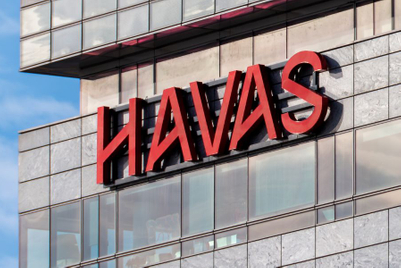
Havas has appointed Ryuji Mitsuishi Banderas, formerly of Google, as its managing director for Japan.
In parallel, Stephen Cox, who has been chief executive of Havas Japan for 7.5 years, has been promoted to vice-chairman and chief integration officer for North Asia.
Banderas joined Google from Beacon Communications in 2014 and was most recently creative activation lead. He was not able to provide specific details as to his priorities or areas of focus as he has not yet started in the role. The new structure will take effect from next week.
At the same time, Banderas said he would try to replicate some of Google’s culture of creativity at Havas. He said the relatively small scale of the company made it possible to take an experimentational approach.
Banderas said he was attracted to Havas partly because of the company’s recent acquisition by Vivendi Group, which owns Universal Music among other media and entertainment brands. He said the alignment opened up new possibilities in terms of what an agency can do.

Cox will be responsible for combining Vivendi’s assets with those of Havas across Japan and Korea. He said he also saw his role as an opportunity to apply innovation from Japan to other markets. That means switching from thinking about advertising as a means of delivering a message to a means of entertaining people, supported by Vivendi’s properties, he said.
“Advertising is about reaching people and inspiring them,” Cox said. "Here in Japan some things are already in place that make it a good region in which to build case studies.”
Clients of Havas in Japan include Air France, Pernod Ricard and Groupe PSA, the automotive company that owns Peugeot and Citroen. The agency does not currently work with any Japanese brands on a retainer basis, but Levent Guenes, Havas’s chief growth officer for Asia-Pacific and chairman and CEO for North Asia, said the company would put emphasis on “locally developed clients”, even if they are international brands.
While Havas, like all non-Japanese agencies, has always been a relatively small presence in Japan (the office has 42 employees), Guenes said he continued to see lots of opportunity given the size of the economy. He said Vivendi’s involvement in the company had helped open new conversations and “made people interested in us who wouldn’t have been before”.
The new structure does not affect the day-to-day leadership of Havas Media in Japan or of Havas in South Korea.


.jpg&h=334&w=500&q=100&v=20250320&c=1)


.png&h=334&w=500&q=100&v=20250320&c=1)





.png&h=334&w=500&q=100&v=20250320&c=1)

.jpeg&h=268&w=401&q=100&v=20250320&c=1)





